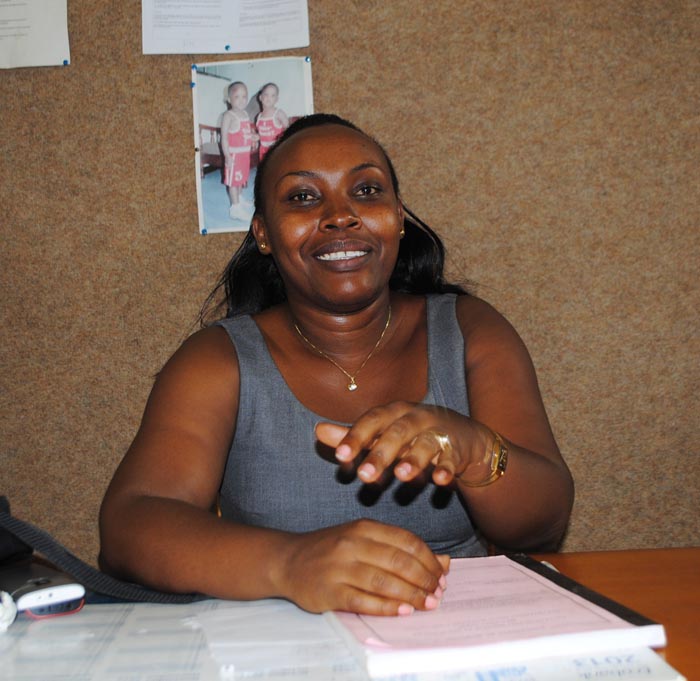Nowadays, sexual violence to children is getting worse and worse. According to a psychologist, it is a strange and unstable behaviour which depends on different factors.-By Diane Uwimana

Dr Rénovate Irambona: “Eradicating sexual abuse or violence completely in the society implies administrative authorities to take appropriate and harsh measures to punish the actors. Both detention and re-education will play an important role to avoid sexual violence, crimes and abuse in our society.”©Iwacu
Young children of less than 15 are commonly affected by sexual violence in our society. The recent case is from Bubanza province where a six- year young girl was abused by a boy of 19. Seruka Centre that helps sexually abused people has registered 601 victims of less than 15 out of 1138 of abused persons from January to September in 2013 in the whole country. 53% of victims are abused by known civil people like neighbours, housekeepers, family members, and teachers.” In sum, the aggressors are those who are always near the victims,” points out Christa Josiane Karirengera, Coordinator of Seruka Centre. According to Doctor Rénovate Irambona, a Psychologist and Lecturer at the University of Burundi, the phenomenon is due to several reasons. The first reason is often caused by perverted people whose desire is to have sex with children and this is qualified as perversion or paedophilia in other words. “40% of the aggressors have been abused in their childhood”, underlines Dr Irambona.
She indicates the second reason is that the majority of the aggressors often lack love, recognition, valorisation in their childhood. “Due to the inferiority complex, they prefer to abuse young children as they are easily mistreated”, adds Irambona. Third, Burundian culture and poverty push some aggressors and the victim children themselves to enable this kind of crimes. Although the causes are psychological, the attitude is also motivated by excessive boldness because of impunity. Thus, many people tend to believe that they are allowed to do it as they are not punished accordingly. “If someone who commits that kind of crime is not punished, there are many risks and ways to increase it because people somehow feel that they are not mistaken; thus, they continue to do the same thing», points out Irambona. It is worthy to mention that sexually abused children go through threatening situations in their life. “They are physically as well as psychologically injured and shocked when their genital organs are cut. They can’t express themselves as they are afraid of talking about sexual abuse they have endured, avoiding being subjects of laughter or afraid of denouncing someone who has committed the act. They often lose their identity, become lonely, introvert and sometimes develop a kind of hatred. It often happens to come across with cases of young girls of about thirteen or fourteen who have given up their studies because of undesirable pregnancy,” explains the psychologist.
“Adults are the fruit of their childhood situation”
According to the psychologist, it is worth preventing children from this troubling situation during their childhood. So, they need effective supervision and education from their parents, relatives, teachers and other members of the society for their promising future. Children also need a certain sexual education by their parents to allow them to preserve their innocence and acquire enough knowledge to avoid being caught by sexual abusers’ traps. “Eradicating sexual abuse or violence completely in the society implies administrative authorities to take appropriate and harsh measures to punish the actors. Both detention and re-education will play an important role to avoid sexual violence, crimes and abuse in our society,” concludes Dr Irambona.














 IWACU Open Data
IWACU Open Data

